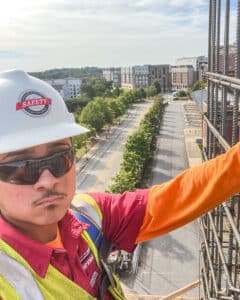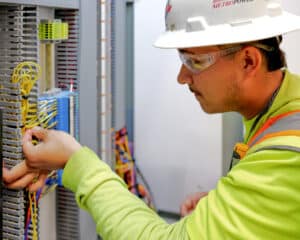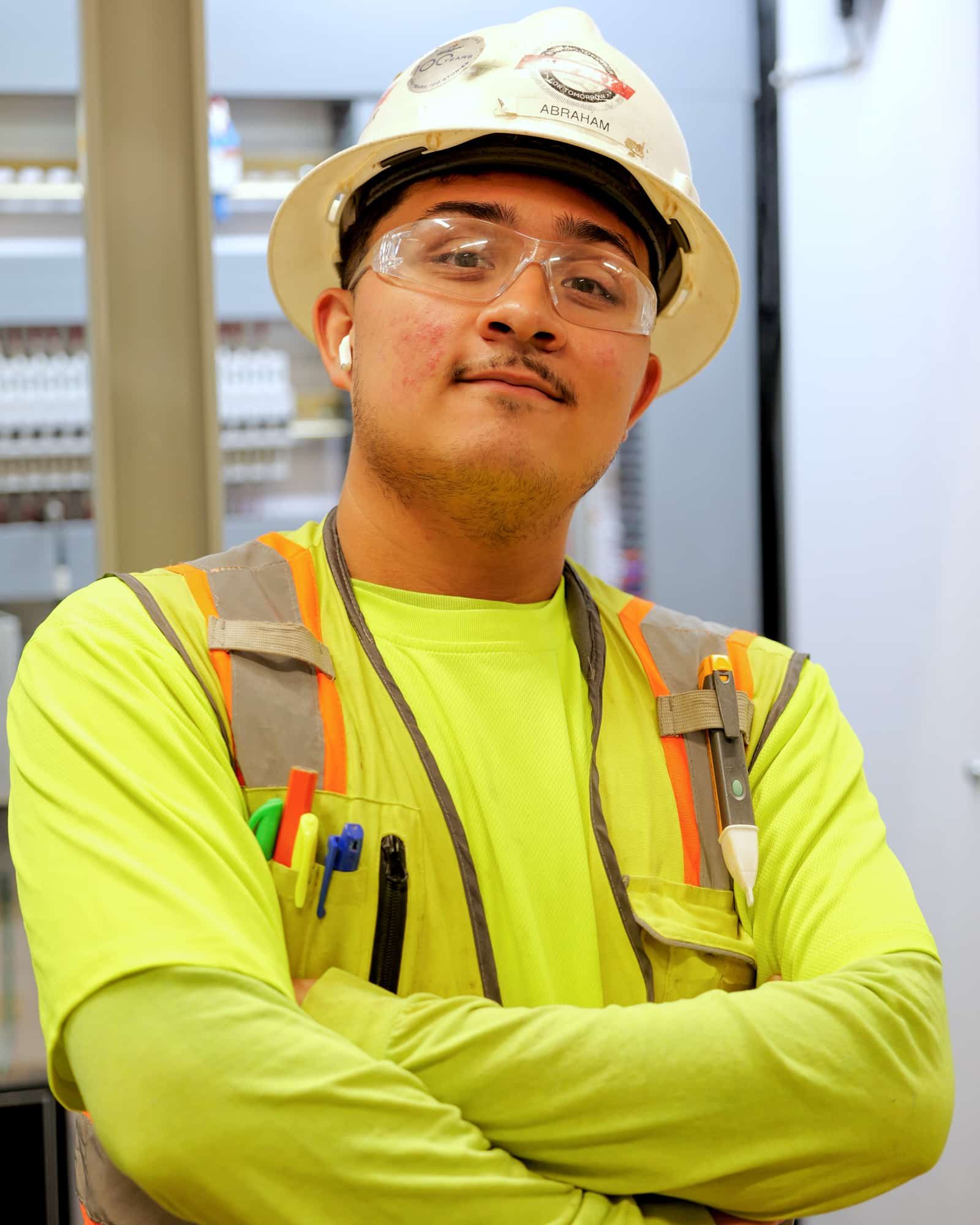Electrical Outlet
MetroPower Gave Abraham Rodriguez the Opening He Needed after High School
When he was a senior in Berkmar High School’s Class of 2021, Abraham Rodriguez wasn’t enamored with the notion of college. Fortunately, more and more high school instructors and counselors are recognizing that college isn’t a one-size-fits-all solution. Such was the case at Berkmar, where students are encouraged to pursue hands-on trades if that’s where their interests lie.
“The Berkmar construction program opened my eyes to seeing other options,” recalls Abraham, who began a part-time Work Based Learning (WBL) job with MetroPower while he was still in school. “A lot of the time we get forced into thinking that college is the only route. I’m not against college; I just didn’t know what I would do if I went.”
For Abraham, moving directly into a full-time job with MetroPower was far more appealing. Four years after graduation, that decision clearly has paid off: He loves his career, and in May 2025 he officially became a Journeyman Electrician. In the following Q&A he talks more about his work and shares some insightful observations about the value of mentorship.
How did you get interested in construction?
My father has always worked in construction; for as long as I can remember, it’s been a part of my life. He was a painter and there are pictures of him on ladders, painting with a spray gun – that kind of stuff was cool to me. When I got into high school and joined the Berkmar construction program, that just kind of amplified my interest.

In high school, in my junior year, I didn’t know what I wanted to be. I got into doing electrical part-time the next summer. I worked at MetroPower’s pre-fabrication shop in Tucker, where they make electrical products. From there, I started to get more and more interested, and I decided I was going to do the apprenticeship. All I knew was that I wanted to learn and be the best electrician I could be.
What was your experience like after you graduated and became a full-time apprentice?
After I graduated, I started work full-time on June 1st of 2021. I was in the shop for about a week, then the next week I got sent out to work in the field with our low-voltage department. The first month, the foreman immediately put me to work. I had heard that a lot of the time, you have to start by cleaning up and doing chores before you can actually start learning [the trade]. But he put me straight to work. I was pulling data cables for ethernet, WiFi and other communications.
The first six months were challenging for me because I didn’t know as much as everybody else. I was unsure of everything I did. If you’re doing something new, you’re nervous; you don’t want to mess up or get in trouble. But I worked one-on-one with a foreman, which was pretty cool. It’s very rare that you get to do that [as a beginner].
Abraham’s early field experience included a renovation job at his high school alma mater, work at an industrial water plant in Carrollton, and another renovation at Atlanta’s Grady Hospital.

At Grady, I think that’s where I truly started to excel in electrical. I had another foreman to work with, and one day he said, ‘Abraham, here’s some prints. Read them and talk to me about your layout, talk to me about your game plan.’ I’m forever thankful for that, because it’s one thing to learn the installation part, but it’s also very important to be able to read the prints, the layouts, to understand the installation process and why you’re doing what you’re doing.
Not everybody gets that opportunity to excel so fast. A lot of people are very busy and sometimes they don’t want to teach; it’s a business and the work has to get done, so there’s not always time to sit there and mentor somebody as much as they might need it. It was a privilege to be around some people who are very knowledgeable, and for them to pass down that knowledge to me.
You’ve also worked on a large entertainment facility, the new Akins Ford Arena in Athens. What was that like?
I started off on that job doing underground, and then we started doing overhead, putting up racks. It is a mega-project; at one point we had about 150 guys out there. At this job I had the opportunity to be a lead man as an apprentice. It was a great experience that my foreman hand-selected me to be a lead man. He said, ‘This is a situation where we need people to step up, and I think you’re that guy. I know you’re capable.’
Were you nervous about taking on more leadership responsibilities?
I’ll be honest, at first I didn’t like it – I was a 21-year-old kid and it was a lot of pressure. But I just tried to be the best lead man I could be. Everybody I know who’s been a foreman says there’s never a perfect time to be a foreman. When you step into the position of leading a crew, even if you want it very bad, you’ll still feel the pressure. It’s an unknown, and as human beings, we fear the unknown sometimes. But I feel like all these things that have happened have made me better.
Nicholas Schofer, Construction Academy Lead at Berkmar, had this to say about Abraham: “He was an extremely hard worker in our program. Since going to work for MetroPower, he has been extremely successful as an apprentice there. He is leading other apprentices in their training. He is truly one of those people who has appreciated his opportunity to learn the trades in high school and is turning around and helping the next generation.”
How have you been able to start mentoring others who are coming into the profession after you?
My foreman, Mike Butler, told me that we have to train the next generation. He said, ‘The way I’ve trained you, you have to train the next guy coming up. We’re all rising as a team.’ I’ve been working with an apprentice, Jose Portillo, who came out of Berkmar as well. He has a great work ethic and I see a lot of me in him. He’s constantly staying late, not for the money, but because he wants to learn. I’m very proud of him, and I tell him that all the time. I think he’s going to be better than me, and it makes me happy because, you know, I helped him.
What would you tell a high school student who is considering a career in the skilled trades?
The trades are as effective as college. Some people just like to do more hands-on work instead of the academic stuff. I’m sure there are many others like me who are not sure about going to college, and they go out into the field and they just love it and excel in it. I’ve experienced it, and I’ve met a lot of people who have dedicated their lives to the trades, and I’ll tell you, they do pretty well for themselves. They’re successful and they’re happy, which proves that this is a great path to take.



